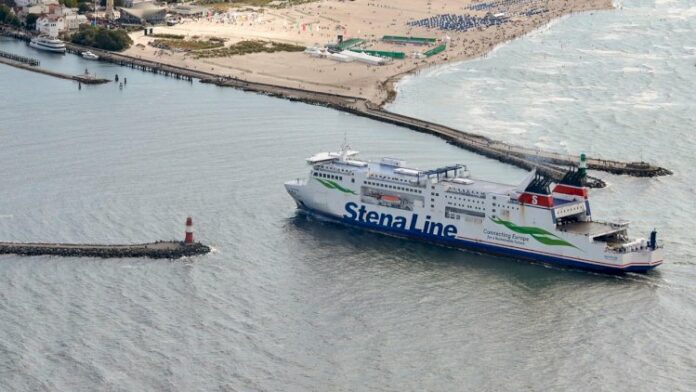Stena Lines pilot project using artificial intelligence (AI) technology to predict the most fuel-efficient way to operate a vessel has shown to be successful. The results show a reduced fuel consumption by 2-3 % per trip. The technology will now be launched on more vessels.
Reducing the vessels fuel consumption is a priority area for Stena Line and the ferry company have a target to lower the fuel consumption and CO2 emissions by 2.5 % yearly. Fuel is also one of the largest costs for a ferry company like Stena Line, at around 20% of total costs. AI technology has shown to be a successful solution to tackle these challenges and achieve the ambitious targets Stena Lines has set for ourselves.
In 2018 Stena Line started a pilot project onboard the Stena Scandinavica on the Gothenburg – Kiel route using AI technology to predict the most fuel-efficient way to operate a vessel. The results show that the project has been successful, enabling the captain and crew to save 2-3 % fuel per trip with AI assistance. The software is now named Stena Fuel Pilot and will be installed on five more Stena Line vessels during the autumn. The ambition is to do a complete fleet wide roll-out on all 37 vessels in Europe during 2020.
Jari Virtanen, Chief Transformation Officer at Stena Line, says:
“Stena Line aims to become the worlds first cognitive ferry company; assisted by AI in all areas by 2021. This project is using AI technology to support our captains and officers to save fuel. By improving the efficiency, we reduce both our costs and our environmental footprint. It really embodies Stena Line’s vision of Connecting Europe for a Sustainable future.”



